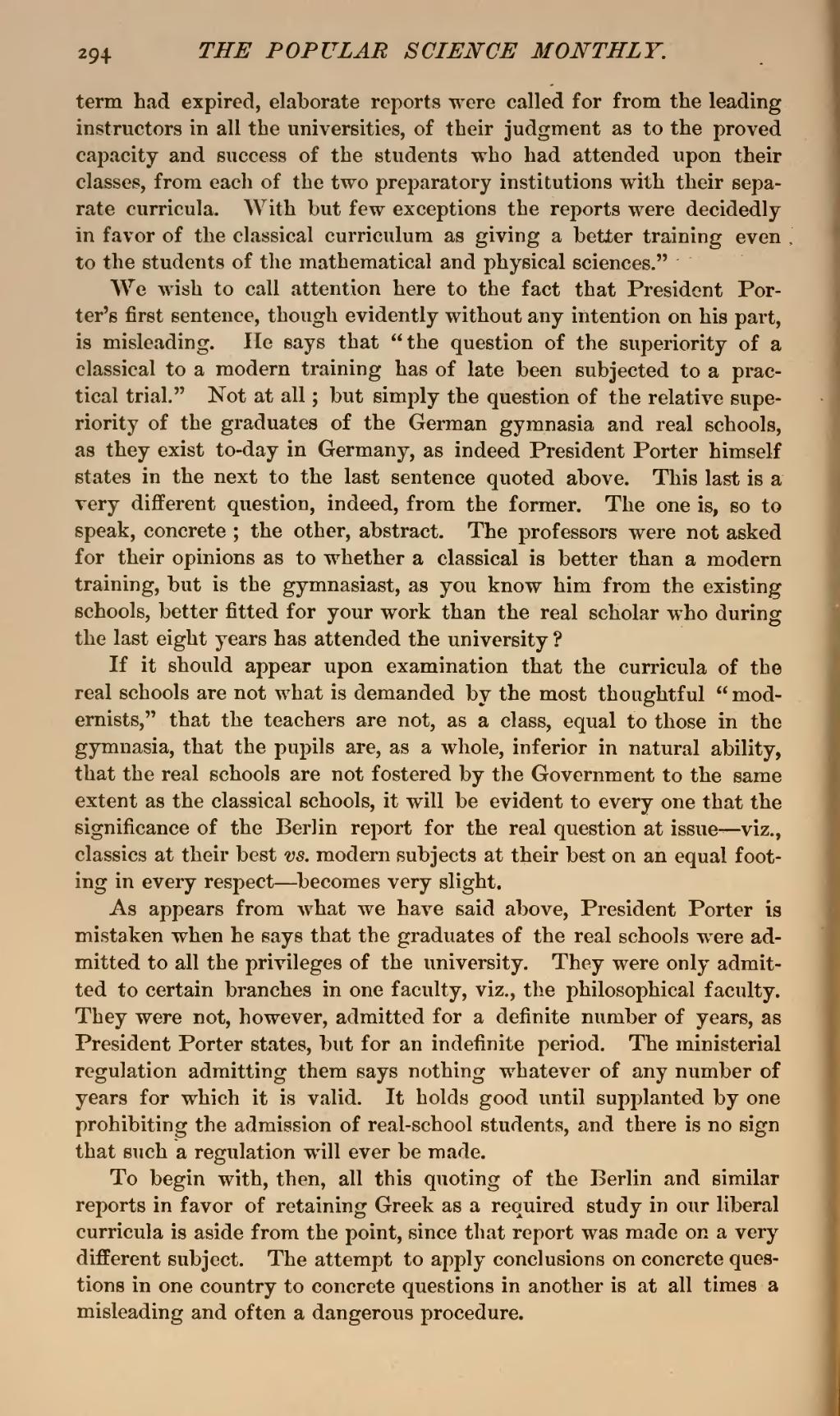term had expired, elaborate reports were called for from the leading instructors in all the universities, of their judgment as to the proved capacity and success of the students who had attended upon their classes, from each of the two preparatory institutions with their separate curricula. With but few exceptions the reports were decidedly in favor of the classical curriculum as giving a better training even to the students of the mathematical and physical sciences."
"We wish to call attention here to the fact that President Porter's first sentence, though evidently without any intention on his part, is misleading. He says that "the question of the superiority of a classical to a modern training has of late been subjected to a practical trial." Not at all; but simply the question of the relative superiority of the graduates of the German gymnasia and real schools, as they exist to-day in Germany, as indeed President Porter himself states in the next to the last sentence quoted above. This last is a very different question, indeed, from the former. The one is, so to speak, concrete; the other, abstract. The professors were not asked for their opinions as to whether a classical is better than a modern training, but is the gymnasiast, as you know him from the existing schools, better fitted for your work than the real scholar who during the last eight years has attended the university?
If it should appear upon examination that the curricula of the real schools are not what is demanded by the most thoughtful "modernists," that the teachers are not, as a class, equal to those in the gymnasia, that the pupils are, as a whole, inferior in natural ability, that the real schools are not fostered by the Government to the same extent as the classical schools, it will be evident to every one that the significance of the Berlin report for the real question at issue viz., classics at their best vs. modern subjects at their best on an equal footing in every respect—becomes very slight.
As appears from what we have said above, President Porter is mistaken when he says that the graduates of the real schools were admitted to all the privileges of the university. They were only admitted to certain branches in one faculty, viz., the philosophical faculty. They were not, however, admitted for a definite number of years, as President Porter states, but for an indefinite period. The ministerial regulation admitting them says nothing whatever of any number of years for which it is valid. It holds good until supplanted by one prohibiting the admission of real-school students, and there is no sign that such a regulation will ever be made.
To begin with, then, all this quoting of the Berlin and similar reports in favor of retaining Greek as a required study in our liberal curricula is aside from the point, since that report was made on a very different subject. The attempt to apply conclusions on concrete questions in one country to concrete questions in another is at all times a misleading and often a dangerous procedure.

